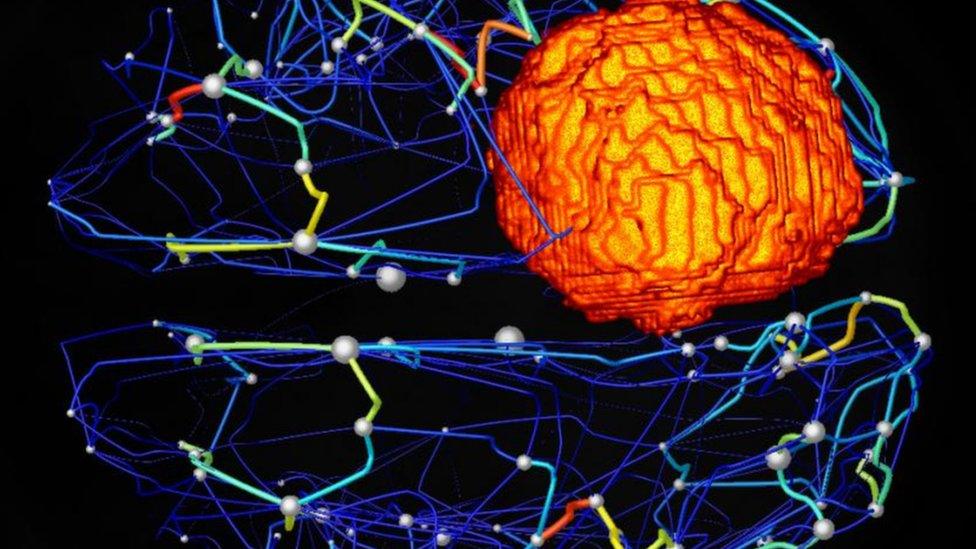Man develops same tumour as wife 18 years on
- Published
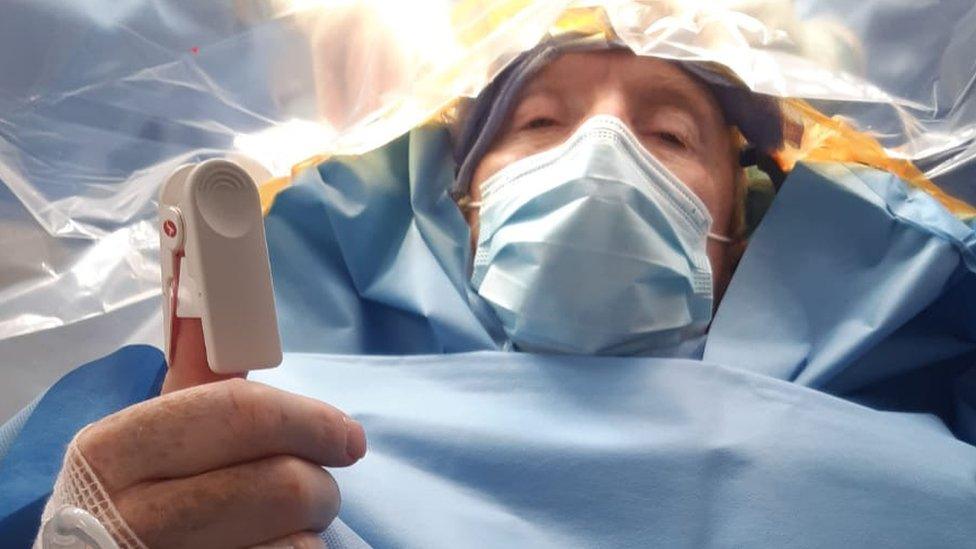
Jim Murphy said he was "so inspired" by his wife Gill's journey with the same kind of brain tumour
A man developed the same brain tumour as his wife in a "one in a million" coincidence and sent selfies while awake during surgery to remove it.
Jim Murphy was treated for a glioblastoma multiforme, 18 years after wife Gill developed the same condition.
Mr Murphy, 54, said: "What are the chances of that? You just couldn't make it up could you?"
The Asda buying manager said he "helped guide the surgeons" while awake for five hours of his operation.
The craniotomy took place at Hull Royal Infirmary during lockdown, with both Mr Murphy and the surgical team wearing full personal protective equipment due to the risk of Covid-19.
Mr Murphy, from Cawood, near York, said: "In a bizarre way, I really enjoyed the surgery. It was like a great meeting at work where I was one of the key decision makers helping to guide the team on how far they could go."
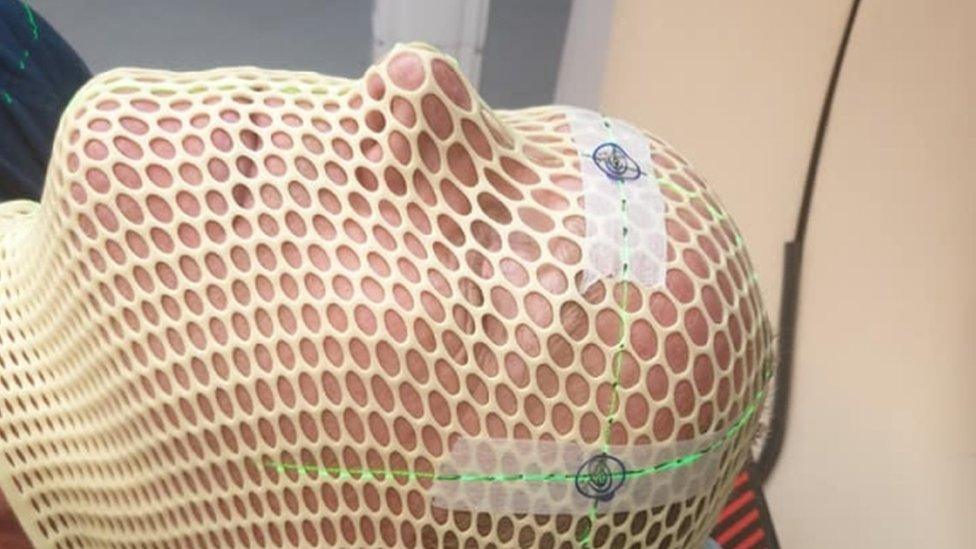
Mr Murphy said he wants to inspire other people to go through the same procedure
While in theatre, Mr Murphy sent photographs of himself to his friends and family - giving a thumbs up - and listened to music to help drown out the noise of the surgical instruments.
He was given the option of being brought round for part of the operation so surgeons could monitor his motor skills.
Doctors told him that, because of the location of the tumour, they would be able to remove up to 90% of the tumour.
Mr Murphy said: "I firmly believe that because I took control of my own treatment plan and helped to guide the surgeon and his team away from the critical motor strip by staying awake, they were able to remove so much more."
A spokesman for Brain Tumour Research said it was "a one in a million chance" that both the couple would develop glioblastoma multiforme, the most aggressive form of brain tumour.

Follow BBC Yorkshire on Facebook, external, Twitter, external and Instagram, external. Send your story ideas to yorkslincs.news@bbc.co.uk, external.
- Published19 February 2020
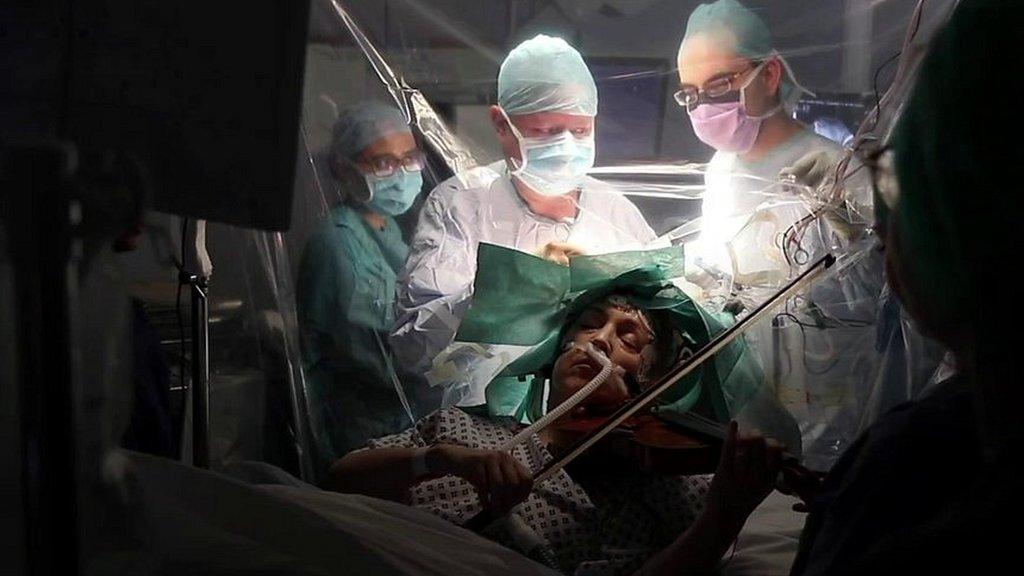
- Published22 August 2018
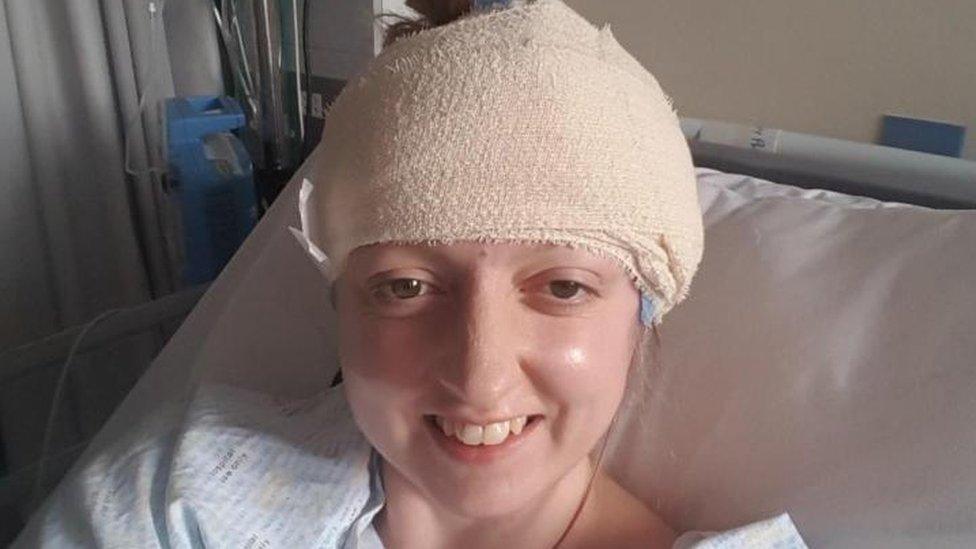
- Published2 June 2018
